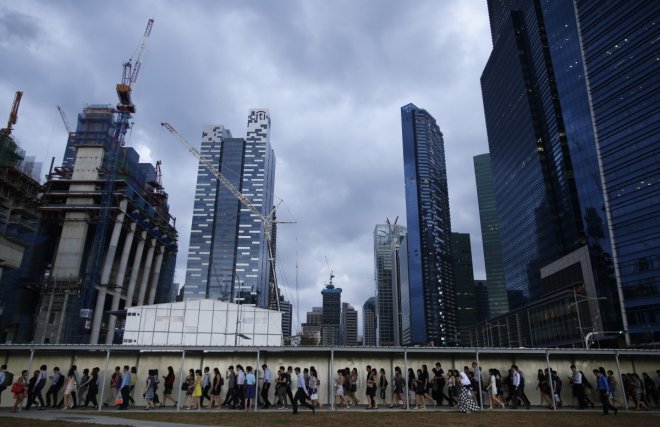
The rate of annual job creation in Singapore has long been declining progressively, but the government has now officially said the heyday is past and there is a new normal. The Manpower Minister said on Wednesday the days when the total annual employment generation in the island Republic crossed 100,000 are gone.
"We won't go back to the days of 100,000, 120,000 a year but slightly more towards maybe 25,000 to maybe 40,000 a year. So the number will stabilise at the new base," Manpower Minister Lim Swee Say said.
In early January, data from the Ministry of Manpower showed that total jobs rose only marginally in 2016, recording the smallest increase since 2003. Total jobs in Singapore rose by 16,400, or 0.4 percent, last year compared with an increase of 32,000, or 0.9 percent in 2015. Weaker and more uncertain economic environment presented challenge to sustained growth in unemployment last year, the report said.
Singapore's export-led economy had been pressured by the global downturn for more than a year, with the city state's dominant oil and gas sector suffering long-term setback due to the continued slump in oil prices.
Minister Lim said the manpower ministry will focus on three key areas -- Professional Conversion Programme, Professionals, managers, executives and technicians (PMET) sector and the Career Support Programme.
The Ministry said in a report on Monday that job vacancies rebounded after six straight quarters of declines. The data showed there 53,800 job openings in September last year, which was a significant rise compared with the previous quarters but still below 65,700 openings in December 2014.
An overall economic slowdown in Singapore, which was triggered by the China meltdown, was exasperated by the oil price crash that impacted negatively the health of the country's booming oil and marine services sectors, leading to thousands of job losses in the last two years.
However, the economic growth rebounded in the fourth quarter, helping the trade-reliant city state avoid a technical recession. The economy recorded a faster than expected annual growth rate of 1.8 percent in 2016, data released by the Ministry of Trade and Industry (MTI) showed on January 3.
While the growth in the fourth quarter helped avoid a technical recession, which is defined as two straight quarters of declines in economic output, this was the slowest pace at which the economy grew since 2009.








